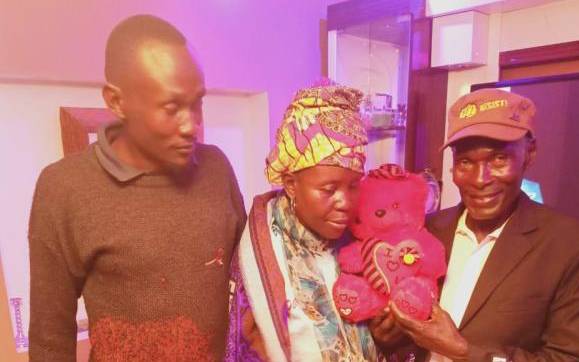×
The Standard e-Paper
Stay Informed, Even Offline

Mary Sewe with her husband (right) and son after the three were reunited in Nairobi. [Photo: Courtesy]
Mary Sewe is at her home in Gem, Siaya County, five months after she was rescued from the streets in Ndoroto, a few kilometres from Kitengela, Kajiado County.